I have nested json file which has time zone which is in UTC format I am capturing that and putting it into a column and then trying to convert that to cst by creating a column for CST but it is not converting can anybody help am posting the code below
def extract_json_data(fpath):
print("Extracting " + fpath)
f = open(fpath, 'r')
json_data = json.loads(f.read())
data = json_data['data']
dt = datetime.datetime.strptime(json_data['time'], "%Y-%m-%dT%H:%M:%SZ")
dt_cst = dt.astimezone(timezone('US/Central'))
_ = [row.update({'time_UTC': dt.strftime("%Y-%m-%dT%H:%M:%SZ"),
'time_CST': dt_cst.strftime("%Y-%m-%dT%H:%M:%S CST")}) for row in data]
